Where I Went:
This week I served the less fortunate with money rather than physical labor by attending Water 1st, Beer 2nd.
Water 1st is a non-profit dedicated to ending the global water crisis. Their mission statement explains their purpose:
To enable the world’s poorest people to implement and sustain community-managed projects integrating clean water, sanitation and hygiene education. Water 1st unites people to fight the global water and sanitation crisis. We believe this worldwide, silent catastrophe will be solved when we build a community of concerned individuals and mobilize them to take simple, effective actions.
First Impressions:
I’ve never been to a charity dinner before. To tell you the truth, I’ve always thought it odd to spend money on food or an auction when I could just give funds directly to the organization in need.
However, the goal of my 2012 experiment is to serve the less fortunate in a variety of ways, so I’m counting this as a new opportunity.
The Job:
I went to Water 1st, Beer 2nd with the Pastor and Pastor’s Wife from my church. The cost to attend was $50 a plate and took place in a private room at Portland’s Bridgeport Brewery. Kind of pricey for me, but encouraging to be in a room where everyone was so committed to the cause. And lovely to drink beer while discussing that cause.
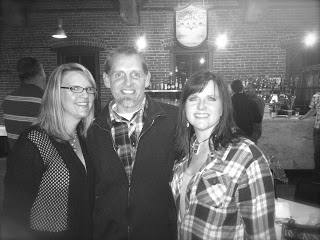 |
| Me with the Pastor and Pastor’s Wife |
During the first part of the evening I socialized, I bid on silent auction items (none of which I won), and I bought T-shirts. They were $10 each, or 2 for $15. I have 2 children, so I bought 2 shirts. I gave the guy a twenty, but how could I accept change back at a charity event? I couldn’t.
Good plan, Water 1st.
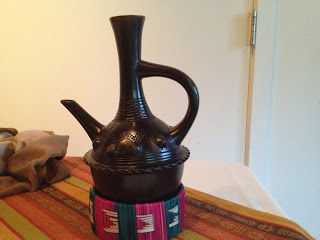 |
| I really wanted this Ethiopian coffee set. |
About an hour into the event, Marla Smith-Nilson, Water 1st’s Executive Director gave an overview on the progression with their Bangladesh partner organization. It is vital that organizations providing water services to Third World cultures not only bring the tools and knowledge for building wells, but also educate these cultures to maintain the facilities once in place.
Funding for the wells and maintenance is raised in the community. In the area Marla spoke of, each family pays $2 a month for their “water bill.”
Education isn’t limited to taking care of the wells. Communities are also taught proper hygiene. Tasks I think of as common sense aren’t so basic to people who have never had clean water. Lessons taught include:
- Using soap and water to prevent diarrhea and disease
- Keeping dishes on shelves and not on the floor
- Building fences around houses to keep animals out of the kitchen.
Simple things to you and me. Not so simple for those who don’t know about clean water.
You and I are lucky. We won the “birth lottery.” We have clean water whenever we want it. In fact, we treat our clean tap water as if it’s not good enough and pay money to buy ultra pure from the mountain, straight into the plastic bottle, water.
 |
| This bottle costs the same amount that a family in Bangladesh pays for their monthly clean water bill. |
I appreciated hearing first hand about the efforts of Water 1st in Bangladesh. On their website, I can also learn what they are doing in Honduras, Ethiopia, and India.
How To Help:
Water 1st accepts monetary donations any time, but also provides many fundraising events, such as
Carry 5: Carrying 5 gallons of water for 5 kilometers, the average distance women and children travel to a water source
Give Water Give Life: Silent auction featuring items where Water 1st serves
Water 1st, Beer 2nd: A chance to hear about Water 1st ventures while enjoying a buffet spread and a microbrew
Think about how much you spend on water in a month. Consider saving the money you may spend on “mountain fresh, purified, bottled water” and instead, donate those funds to a charity like Water 1st, whose goal is to ensure clean water can be accessible world wide.
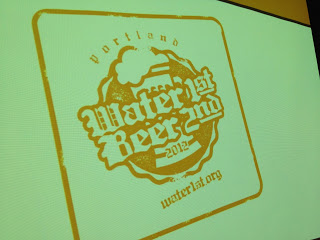
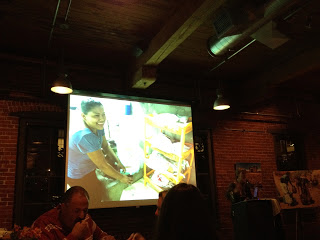
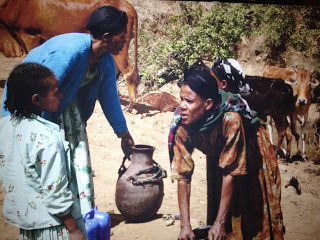
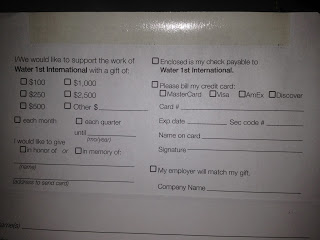
Leave a Reply